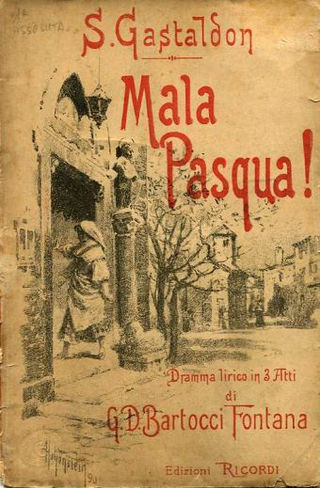Related Research Articles
This article contains information about the literary events and publications of 1903.
This article contains information about the literary events and publications of 1900.
This article contains information about the literary events and publications of 1886.
This article contains information about the literary events and publications of 1888.
This article contains information about the literary events and publications of 1881.
This article contains information about the literary events and publications of 1880.
This article contains information about the literary events and publications of 1879.
This article contains information about the literary events and publications of 1876.
This article contains information about the literary events and publications of 1875.
Events from the year 1868 in literature .
This article contains information about the literary events and publications of 1856.
This article contains information about the literary events and publications of 1855.
This article contains information about the literary events and publications of 1850.
This article contains information about the literary events and publications of 1840.

Giovanni Carmelo Verga di Fontanabianca was an Italian realist (verista) writer, best known for his depictions of life in his native Sicily, especially the short story and later play Cavalleria rusticana and the novel I Malavoglia.
Nationality words link to articles with information on the nation's poetry or literature.
Nationality words link to articles with information on the nation's poetry or literature.

Mala Pasqua! is an opera in three acts composed by Stanislao Gastaldon to a libretto by Giovanni Domenico Bartocci-Fontana. The libretto is based on Giovanni Verga's play, Cavalleria rusticana which Verga had adapted from his short story of the same name. Mala Pasqua! premiered on 9 April 1890 at the Teatro Costanzi in Rome, six weeks before Pietro Mascagni's opera Cavalleria rusticana which was also based on Verga's play. Bartocci-Fontana's libretto adds some elements that were not in Verga's original and expands on others. The name of the Santuzza character was also changed to Carmela, but the basic plot and setting remain the same. Its title refers to the curse which Carmela places on Turiddu, the lover who had spurned her: "Mala Pasqua a te!". Following its Rome premiere, Mala Pasqua! had a few more performances in Perugia and Lisbon, but it was completely eclipsed by the phenomenal success of Mascagni's opera. After the 1891 Lisbon run it was not heard again until 2010 when it was given a semi-staged performance in Agrigento, Sicily.

Lie Kim Hok was a peranakan Chinese teacher, writer, and social worker active in the Dutch East Indies and styled the "father of Chinese Malay literature". Born in Buitenzorg, West Java, Lie received his formal education in missionary schools and by the 1870s was fluent in Sundanese, vernacular Malay, and Dutch, though he was unable to understand Chinese. In the mid-1870s he married and began working as the editor of two periodicals published by his teacher and mentor D. J. van der Linden. Lie left the position in 1880. His wife died the following year. Lie published his first books, including the critically acclaimed syair (poem) Sair Tjerita Siti Akbari and grammar book Malajoe Batawi, in 1884. When van der Linden died the following year, Lie purchased the printing press and opened his own company.

Verismo was an Italian literary movement which peaked between approximately 1875 and the early 1900s. Giovanni Verga and Luigi Capuana were its main exponents and the authors of a verismo manifesto. Capuana published the novel Giacinta, generally regarded as the "manifesto" of Italian verismo. Unlike French naturalism, which was based on positivistic ideals, Verga and Capuana rejected claims of the scientific nature and social usefulness of the movement.
References
- ↑ "No. 25308". The London Gazette . 15 January 1884. p. 243.
- ↑ Sadie, Stanley; Macy, Laura, eds. (2006). The Grove Book of Operas (2nd ed.). Oxford University Press. p. 111. ISBN 0195309073.
- ↑ Penguin Pocket On This Day. Penguin Reference Library. 2006. ISBN 0-14-102715-0.
- ↑ Henry James, The Middle Years,Avon Books, 1962; Discus paperback, 1978, p. 99.
- ↑ Edwards, Owen Dudley (4 October 2012). "Wilde, Oscar Fingal O'Flahertie Wills". Oxford Dictionary of National Biography (online ed.). Oxford University Press. doi: 10.1093/ref:odnb/29400 .
- ↑ Burke's Genealogical and Heraldic History of the Peerage, Baronetage and Knightage. Burke's Peerage Limited. 1885. p. 320.
- ↑ Meyer, Michael (1987). Strindberg: A Biography. Oxford Lives. Oxford University Press. ISBN 0-19-281995-X.
- ↑ Salam, Aprinus (2002). "Posisi Fiksi Populer di Indonesia" [Position of Popular Fiction in Indonesia](PDF). Humaniora (in Indonesian). XIV (2): 201–210. Archived from the original (PDF) on 2013-05-31. Retrieved 2013-07-18.
- ↑ Collins, Paul (2009). The Book of William. New York: Bloomsbury. ISBN 978-1-59691-195-6.
- ↑ Toynbee, Arnold (1884), Lectures on The Industrial Revolution in England, archived from the original on 3 March 2016, retrieved 17 January 2022
- ↑ Denis Judd (1986). Alison Uttley: The Life of a Country Child (1884-1976): the Authorised Biography. M. Joseph. p. 1. ISBN 978-0-7181-2449-6.
- ↑ Van Gemert, Lia (2011). Women's Writing from the Low Countries 1200-1875: A Bilingual Anthology. Amsterdam: Amsterdam University Press. p. 500. ISBN 978-9-08964-129-8.